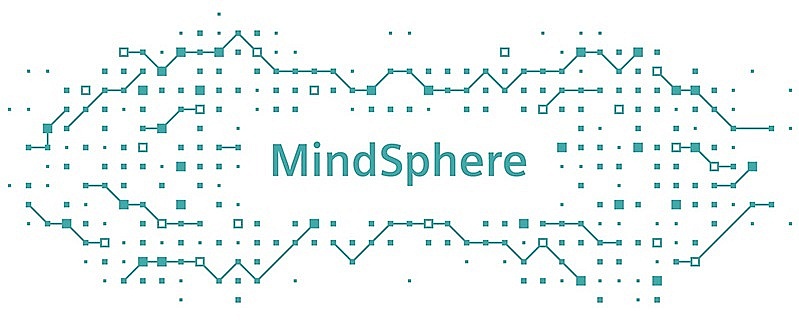Siemens standing at forefront of AI-driven Vietnam
What potential sees Siemens in AI development?
 |
| Dr. Thai Lai Pham, CEO for Siemens ASEAN and Vietnam |
It has been emerging in our daily life in various ways. For example, today we are seeing face or speech recognition as given. In the last two or three decades, major technology advances have been rendering hardware and software more powerful and improved computing power and data transmission. This promotes and offers new areas and dimensions of using AI to create entirely new industrial opportunities for flexible, efficient production, even when it comes to complex and increasingly customised products in small batch runs.
The consequences will be significant. According to a PwC study, AI could contribute up to $15.7 trillion to the global economy in 2030, and a total of 62 per cent of large companies have already been utilising AI technology in 2018.
Furthermore, the industry is becoming increasingly digitalised. Data is continuously generated, processed, and analysed. The volumes of data in production environments are the basis on which digital representations of entire plants and systems are generated. These digital twins have been used for some time to structure the planning and design of products and machinery – and production operations themselves – and do so more flexibly and more efficiently while manufacturing high-quality, customised products faster and at an affordable price.
And thanks to AI, the machines and processes can now gather insights from these high volumes of data by themselves and optimise their processes during live operation.
How active is Siemens in AI and what are the impacts brought about by AI applications at the company?
Siemens has been active in data analytics and AI for 30 years, advancing tech and tapping into the enormous business potential of machine intelligence and human augmentation. Siemens researchers were among the first in the 1990s to harness artificial neural networks for innovative solutions for the optimisation of energy-intensive steel plants.
In 2020, Siemens invested €4.6 billion ($5.4 billion) in research and development and had about 40,000 employees working in these departments globally. Data analytics and AI are powered by over 200 AI researchers and more than 1,000 contributors from divisions all around the globe. AI technologies have been applied in proof-of-concepts, but also in products for many years. For instance, Siemens released the Neural Processing Unit module which enables customers to use AI on the control level – enabling to run AI applications distributed across all levels from MindSphere and Industrial Edge to controller and field devices.
 |
| Siemens standing at forefront of AI-driven Vietnam |
What are the prospects for countries like Vietnam to pursue AI?
Vietnam is one of the fastest-growing economies, with an overall GDP growth reaching more than 6 per cent in recent years, with the industry as its main driver. AI and digitalisation will help to improve the competitiveness of the country, and therefore contribute to even stronger growth of Vietnam. The country is already embracing the next generation of digital natives towards competence building.
Vietnam has a great landscape of businesses which can fully utilise the potential of AI. For example, VinFast has one of the most state-of-the-art factories and is equipped with Siemens’ latest automation hardware and software, which acts as the foundation to unlock the future of AI along the entire manufacturing value chain.
Do you have any suggestions to accelerate AI applications in this country?
AI is impacting many industries in Vietnam, with a focus on e-commerce and transportation. Besides this, there have also been many applications in beverages and manufacturing businesses. However, a lot of things need to be done further to make AI work for the country.
Firstly, the implementation of AI is a journey that requires a clear strategy and roadmap, embracing all of its dimensions like data, computation, talent, and venturing, but also addressing the right industry segments. In this context, initiatives such as the Smart Industry Readiness Index allow to assess and prioritise the digital maturity of industrial segments.
Initiatives such as Innovation and Entrepreneurs Centres enable to accelerate proof of concepts, which can simulate the potential impact of AI. Next, it is crucial to create a lively ecosystem involving corporates, education, venturing, and startups, pushing altogether the adoption of AI.
Lastly, as there is a shortage of AI talents all around the globe, it is of importance to focus on education and skill-building, not only for improving AI and machine learning competences, but also making use of AI in software engineering. Hackathons and bootcamps are a great way to foster the entrepreneurial spirit of the young generation and the startup ecosystem, enabling industrial companies to provide real-world challenges with impact, as well as attract the next generation of AI talents.
Vietnam has a lot of talents and we need to jointly polish those raw diamonds to make them shine in an AI future.
What the stars mean:
★ Poor ★ ★ Promising ★★★ Good ★★★★ Very good ★★★★★ Exceptional
Related Contents
Latest News
More News
- Masan Consumer names new deputy CEO to drive foods and beverages growth (February 23, 2026 | 20:52)
- Myriad risks ahead, but ones Vietnam can confront (February 20, 2026 | 15:02)
- Vietnam making the leap into AI and semiconductors (February 20, 2026 | 09:37)
- Funding must be activated for semiconductor success (February 20, 2026 | 09:20)
- Resilience as new benchmark for smarter infrastructure (February 19, 2026 | 20:35)
- A golden time to shine within ASEAN (February 19, 2026 | 20:22)
- Vietnam’s pivotal year for advancing sustainability (February 19, 2026 | 08:44)
- Strengthening the core role of industry and trade (February 19, 2026 | 08:35)
- Future orientations for healthcare improvements (February 19, 2026 | 08:29)
- Infrastructure orientations suitable for a new chapter (February 19, 2026 | 08:15)

 Tag:
Tag:


















 Mobile Version
Mobile Version